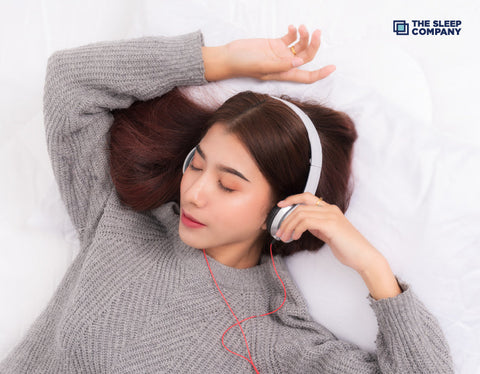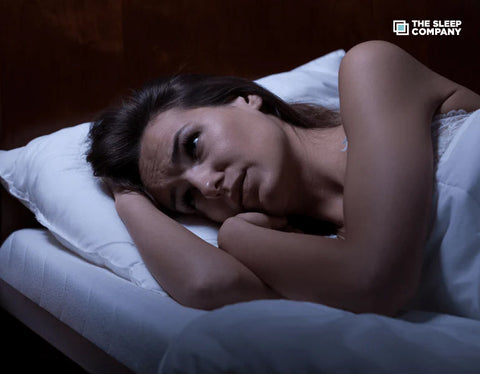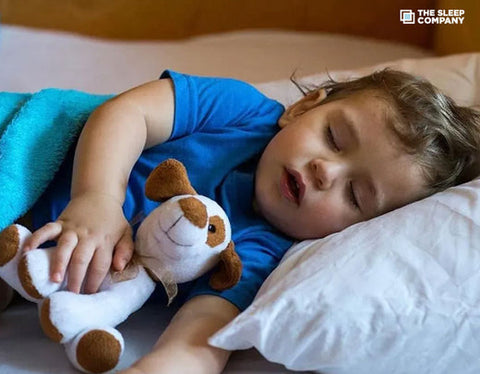My Cart

How Sleep Impacts Relationships

Imagine this. You have not had a good night’s rest, and you wake up all groggy. You just want to rest for a bit longer but your alarm is screaming at you.
Also, the tight deadlines mean you cannot take a day off. So, you put on a brave face and head to work. But unfortunately, you are annoyed with almost everyone for no reason. You feel like snapping at your colleagues even for just breathing. Of course, you keep it all in. Then, after a long day, you come home. Sadly, your partner or the closest to you bears the burnt.
We have all been there.
However, in most cases, it is just a one-day issue, isn’t it? After you have had a good night’s rest, you go back to your old self.
But when sleep deprivation becomes a real issue, it can take a toll on both your mental and physical health. Infact, research also suggests a link between sleep deprivation and your relationships. So, let’s dig deep and see how sleep is correlated to your relationships and the solution to a good night’s rest!
How Sleep Affects Relationships
Can you use your laptop or your phone without charging its battery? Or can it survive on, let’s say, a 10% charge each day? That's what sleep is to you. It helps you recharge and rejuvenate yourself! And running on low battery is never a good idea.
Sleep is crucial for a healthier and happier you. And we are not just talking about physical or mental health here. But sleep is also crucial to your overall well-being and emotional health. However, when you don't enjoy quality sleep each day and every day, it puts you at risk of anxiety and depression.
Insufficient sleep also leads to mood swings, anger, and lack of motivation. And when this becomes severe, the person closest is affected. That's human nature. But when it is not taken care of in time, the situation becomes aggravated. You tend to develop resentment towards your partner and even other relationships and don't give your 100%.
When you don’t make an effort towards any relationship, it tends to become weak over time.
Another research suggests that the lack of sleep can be a hassle for couples. It can increase aggression and even make one appear less appealing or attractive to your partners.
But hey, there is also another side to this. When you get consistent sleep, which lets you wake up with a smile on your face it increases the attraction and strengthens your bond.
How To Recognize The Problem
The very first sign that you are having problems with sleep is that you wake up feeling groggy or annoyed each morning. Even after a dose of caffeine if you are feeling irritated and sleepy, it is time to take a closer look. However, there are other signs of a sleep problem as mentioned below.
- If it takes you a long time to drift off after getting into bed, it could be a sign of a sleep issue. Most healthy adults fall asleep between 10 to 20 minutes.
- Waking up often during the night and struggling to go back to sleep might indicate a problem with your sleep.
- If you are consistently tired, even after what should be a full night's sleep, it could be a red flag.
- Lack of sleep can affect your mood. If you find yourself easily irritated or having mood swings that don't seem like you, it might be linked to poor sleep.
- Difficulty focusing on tasks, forgetfulness, and a lack of concentration are common signs of sleep problems.
- Sleep issues can affect your appetite and can lead to changes in weight or eating patterns.
- Headaches, muscle tension, and other physical discomforts can result from inadequate sleep.
- Constant tossing and turning in bed, or feeling restless during the night, may suggest a sleep problem.
- Relying on caffeine or other stimulants to stay awake during the day might lead to poor sleep at night.
- Even if you spend enough time in bed, if your sleep isn't refreshing, it could indicate an underlying sleep problem.
If you are facing the above problems, always communicate with your partner and your other relationships. That's always the first step. Before you find a solution, let them know what you are going through.
How Much Sleep Do You Need?

For adults, you at least need seven hours of sleep each night. Anything less than that has been linked to poor health, weight gain, heart disease, etc. Don’t compromise with your sleep. In the long run, it keeps you healthy and takes care of your overall well-being. Let's also understand sleep requirements by age:
- Newborns (0-3 months): 14-17 hours per day
- Infants (4-11 months): 12-15 hours per day
- Toddlers (1-2 years): 11-14 hours per day
- Preschoolers (3-5 years): 10-13 hours per day
- School-age children (6-13 years): 9-11 hours per day
- Teenagers (14-17 years): 8-10 hours per day
- Young adults (18-25 years): 7-9 hours per day
- Adults (26-64 years): 7-9 hours per day
- Older adults (65 years and older): 7-8 hours per day
5 Tips To Sleep Well

These five tips can help you fall asleep easily every day. Give it a try!
1. Create a Relaxing Routine
We live in a mechanical world today. It's become work, sleep, and repeat. And when we say work, we don't mean just the office work. It can be anything!
But what happens here is that even after you are done with the tasks for the day, the anxiety associated with it stays with you. Sounds familiar, doesn't it?
This is one of the reasons why you are unable to fall asleep because you are busy thinking about the pending tasks or everything on your agenda the next day.
So here, establishing a calming pre-sleep routine can do wonders. This could include activities like reading a book, taking a warm bath, or practicing gentle stretching. When you do the same set of tasks every day, it not only relaxes you but signals to your body that it's time to wind down.
2. Mind Your Sleep Environment
Your bedroom must be your haven of comfort. Make it conducive to sleep. For instance, even if you are someone who works from home, don't do it from bed. Why? Because then you will no longer associate bed with sleep and this can interfere with your daily shut-eye.
Keep the room cool, dark, and quiet. Minimize electronic devices before bedtime to reduce exposure to stimulating lights. Finally, invest in a comfortable mattress and pillows. For instance,
The Sleep Company's mattresses and pillows come with their very own patented technology to give you the best sleep. So, make sure you end up with a mattress and a pillow that fits your sleep style.
3. Stick to a Schedule
Remember how our parents and grandparents would reprimand us for waking late on Sundays? They would always talk about how going to bed and waking up on time is crucial. They were right, of course!
Try to go to bed and wake up at the same time every day, even on weekends. This consistency helps regulate your body's internal clock and makes it easier to fall asleep and wake up naturally.
This is a simple trick but can be truly impactful.
4. Watch What You Eat and Drink
Avoid heavy meals, caffeine, and large amounts of liquids close to bedtime. These can disrupt your sleep or lead to discomfort. Infact, you must avoid caffeine after 2-3 pm as it can stay in your system for more than 10 hours.
Also, if you are feeling hungry late at night, always opt for light snacks or a soothing drink like herbal tea or turmeric milk. It not only relaxes you but can even help you fall asleep easily.
5. Limit Screen Time
Reduce exposure to screens, such as phones, tablets, computers, and TVs at least an hour before bedtime. The blue light emitted from screens can interfere with the production of the sleep hormone melatonin, making it harder for you to fall asleep.
But that's not all. Sometimes what we watch on social media or the news can leave us feeling agitated or angry. That's not how you want to go to sleep, do you? Instead, opt for relaxing activities right before bed.
The Final Word
Just like you choose good food and exercise to keep yourself healthy, sleep is important too. When you enjoy a good night’s rest, it helps your body heal and repair itself, which is imperative. That said, sleep is also important to maintain healthy relationships. Poor sleep makes room for conflicts, and aggression and even changes the perspective you have about your partner. Even the healthiest relationship can suffer when sleep deprivation becomes a real issue.





























































